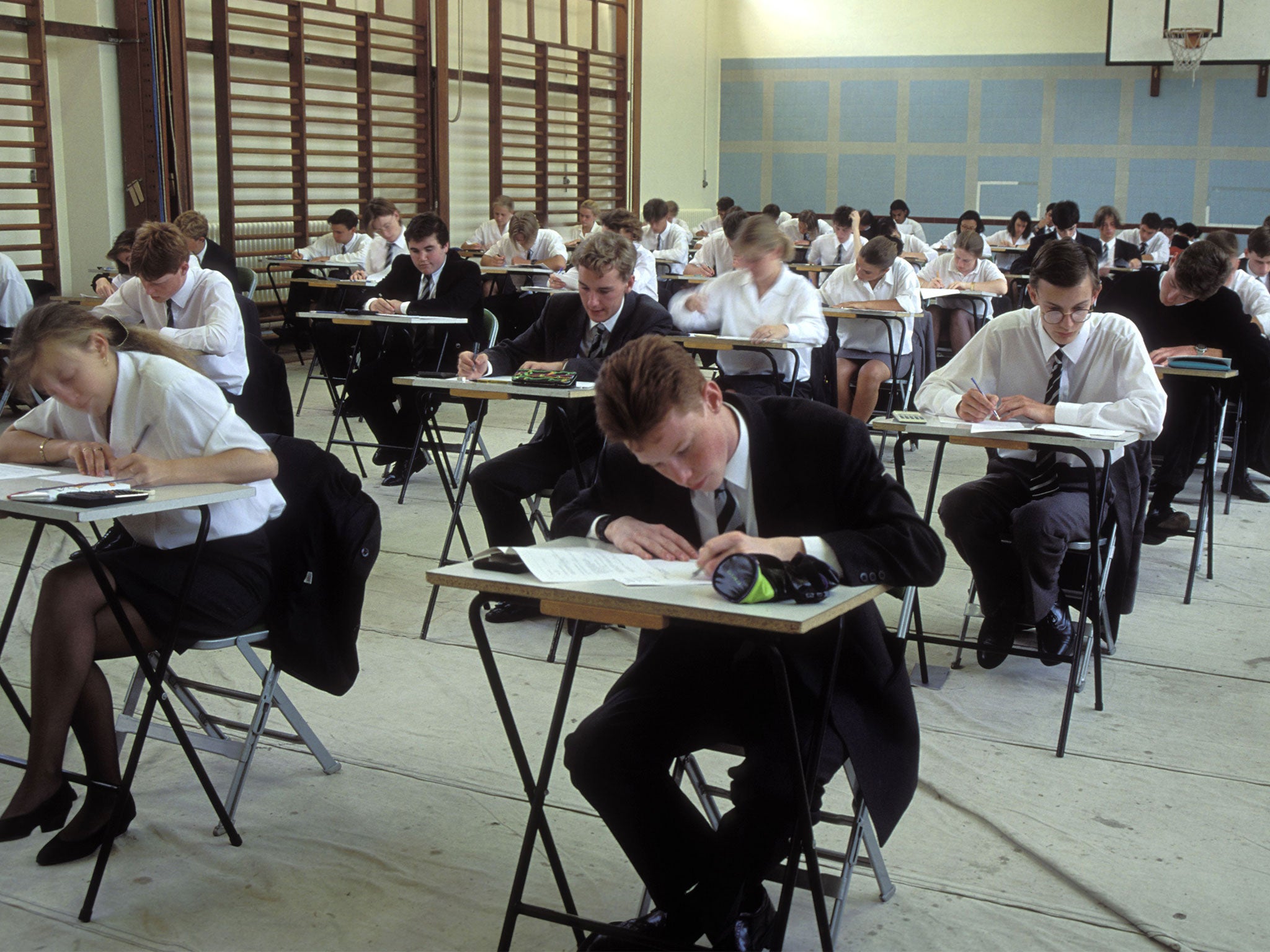Grammar schools debate: Would you pass the test?
Prime Minister Theresa May has announced plans to lift a ban on selective grammar schools, stirring a backlash from MPs and teaching groups alike. But what does the selective process entail, and would you pass the test?

Your support helps us to tell the story
From reproductive rights to climate change to Big Tech, The Independent is on the ground when the story is developing. Whether it's investigating the financials of Elon Musk's pro-Trump PAC or producing our latest documentary, 'The A Word', which shines a light on the American women fighting for reproductive rights, we know how important it is to parse out the facts from the messaging.
At such a critical moment in US history, we need reporters on the ground. Your donation allows us to keep sending journalists to speak to both sides of the story.
The Independent is trusted by Americans across the entire political spectrum. And unlike many other quality news outlets, we choose not to lock Americans out of our reporting and analysis with paywalls. We believe quality journalism should be available to everyone, paid for by those who can afford it.
Your support makes all the difference.Grammar schools have become the subject of much debate in recent weeks, with Prime Minister Theresa May proposing a £50m government plan to support the expansion of the high performing selective schools.
For children to secure a place at a state-funded grammar school, they must first pass an academic test called the Eleven Plus.
Taken by pupils in their final year of primary school, the test used to be widespread across England, Wales and Northern Ireland, and divided children into higher and lower achievers accordingly.
Pupils are tested on four different areas: verbal reasoning, non-verbal reasoning, maths and English.
A ten or eleven-year-old child would typically have a maximum of 30 seconds per question and would spend around 5.15 seconds on an English question.
The exam is far less common now only a handful of the schools are still operative, and the qualification rate varies widely across the country.
But following recent news that a Labour-induced ban on the schools may soon be lifted, the Eleven Plus may soon become a more common feature in the shift from primary to secondary schools.
Many politicians, teachers and campaigners have spoken out against the selective process and argue that children from disadvantaged backgrounds are more likely to fare badly compared to their better-off, well-supported peers.
But how well would you do in the Eleven Plus? Would you pass and make it on to a top performing grammar school, or fall below par and be sent to a secondary modern?
No cheating - take the test to find out.
Join our commenting forum
Join thought-provoking conversations, follow other Independent readers and see their replies
Comments